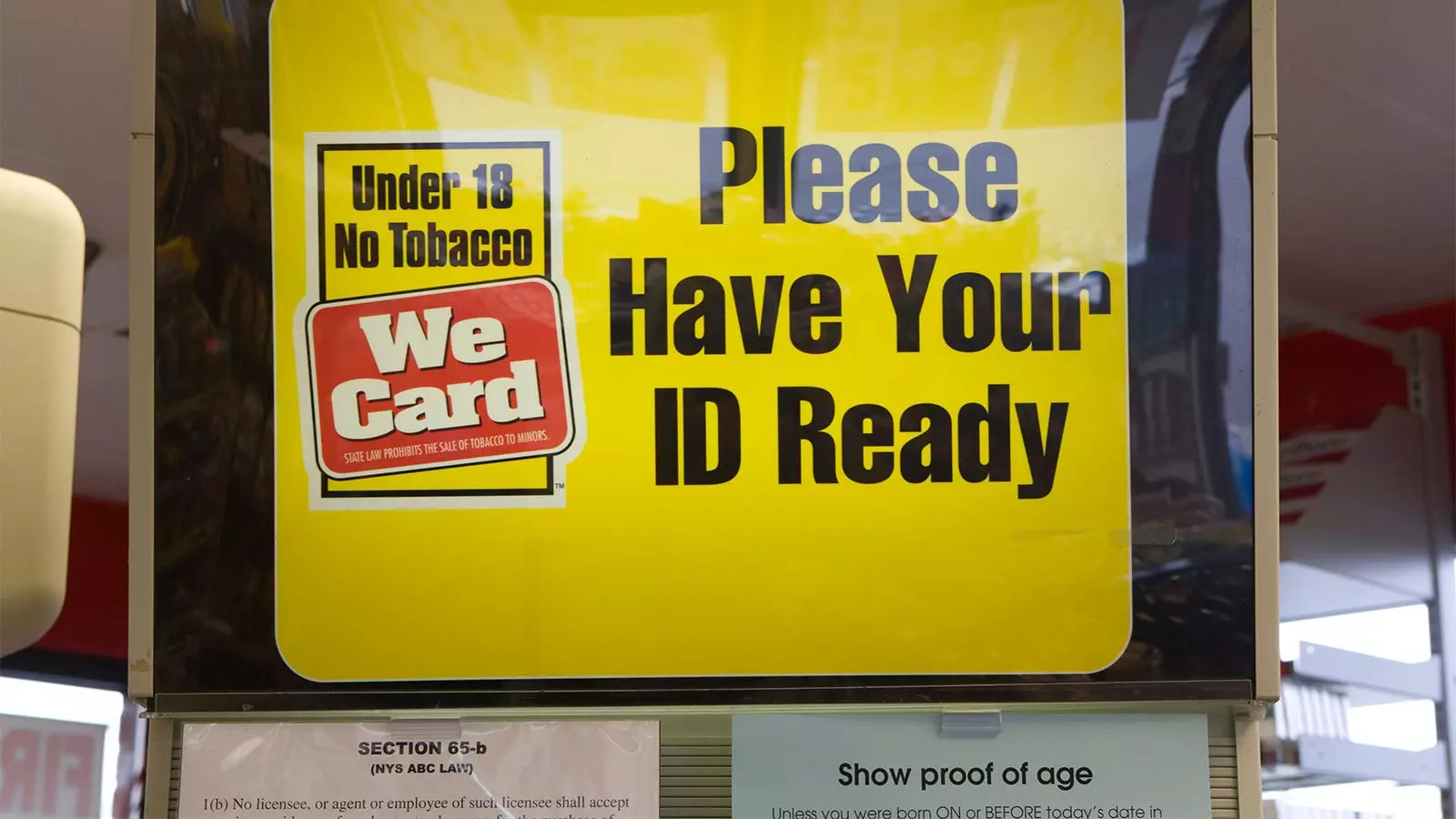In an effort to combat youth smoking and enhance public health, the U.S. Food and Drug Administration (FDA) has updated its regulations regarding tobacco sales. Starting September 30, 2023, a new rule mandates that retailers verify the age of customers under 30 who are attempting to purchase tobacco products, including e-cigarettes. This regulation is part of a broader initiative to adhere to the Further Consolidated Appropriations Act, which raised the federal minimum age for tobacco sales from 18 to 21 in December 2019. Such steps reflect a commitment to protecting young people from the potential dangers associated with tobacco use.
The recent changes necessitate that retailers meticulously check photo identification for anyone appearing to be under the age of 30. This shift from the previous requirement of verifying the age of those under 27 is grounded in research which suggests that age discernment based solely on appearance is often inaccurate. The FDA’s insistence on strict ID checks underscores a larger narrative; it is imperative that commercial establishments assume responsibility in mitigating access to tobacco products among minors and young adults.
While ensuring compliance with these new regulations may seem burdensome to retailers, the public health implications are far-reaching. By tightening age verification processes, the FDA aims to reduce the accessibility of tobacco among youth, as early exposure is a significant contributor to long-term addiction. Notably, studies indicate that more than 95% of adults who smoke daily report initiating their habit before the age of 21.
Another critical aspect of the new regulations is the prohibition of tobacco product vending machines in locations where individuals under the age of 21 may be present. This legislative change serves as an additional layer of protection against underage access to tobacco products, which have historically been too readily available. Previously, vending machine restrictions were limited to venues where individuals under 18 were permitted. By expanding this prohibition, the FDA aims to create a barrier that further curtails access and emphasizes the seriousness of the tobacco epidemic among youth.
This approach to tobacco sales reform signals a proactive investment in safeguarding the health of future generations. The agency’s resolve in regulating tobacco sales reflects a robust understanding of the public health crisis surrounding tobacco addiction—one that has devastating consequences for individuals and society alike.
To ensure that these new regulations are adhered to, the FDA has ramped up its enforcement efforts. To date, the agency has conducted over 1.5 million compliance checks on retailers to confirm adherence to federal age restrictions. These inspections have led to significant disciplinary actions, including issuing more than 134,000 warning letters, over 33,000 civil money penalties, and 230 orders preventing tobacco sales to violators.
This commitment to rigorous enforcement illustrates the importance of accountability in addressing the tobacco epidemic. Stakeholders, including retailers and community organizations, are encouraged to cooperate with federal initiatives aimed at reducing youth tobacco use. The FDA is also providing resources to assist retailers in complying with the new regulations. These resources include guidance on age-of-sale restrictions, as well as access to the Searchable Tobacco Products Database, which outlines legally marketable tobacco products in the U.S.
The FDA’s rigorous enforcement of tobacco regulations marks a crucial step in the ongoing battle against tobacco addiction, particularly among the youth. As more comprehensive measures are put in place, it remains essential for retailers, policy-makers, health professionals, and advocates to work together to foster healthier communities. Achieving a smoke-free future requires a multi-faceted approach that prioritizes education, stringent regulations, and a collective commitment to protecting young people from the dangers of tobacco.
The FDA’s new age verification regulations serve as a testament to the agency’s commitment to public health and the significant efforts to curtail youth access to tobacco products. By focusing on prevention and stringent enforcement, there is hope that the trend of smoking among young individuals can be reversed, leading to healthier populations and reduced healthcare costs associated with tobacco-related illnesses. The road ahead is undoubtedly challenging, but the collective will to protect the health of future generations is a paramount priority.


Leave a Reply